Homeschooling Rising Into the Twenty-First Century:
ALPHA-PHONICS Blog Editor Note: (This is a repeat of the series presented in 2019) This an 11 part series of papers on the status of Homeschooling in the US. This is the Introduction and part 1. Remaining parts will be posted shortly. The study was conducted under the auspices of Vanderbilt University Peabody Journal of Education: Issues of Leadership, Policy and Organizations.
Introduction:
Brian D. Ray, National Home Education Research Institute
ABSTRACT
It is easy to forget history and that thinkers holding fundamentally different worldviews have been thoughtfully critiquing institutional mass schooling for many decades (e.g., Cole, 2010; Freire, 1970; Gatto, 2001) and calling for something radically different than that which nearly 96% of all American children now experience. It is also easy to forget that institutional state schooling did not involve the majority of what are now called school-age children for most of the “school year” until after 1900 (Ray, 2012). With so many educational scholars, policymakers, journalists, and even the general public forgetting such history, it is not difficult to comprehend why the modern-day, parent-led home-based education movement—that is in many ways radically different from mainstream and institutionalized schooling, both state run and private—stirs up many a curious query, negative critique, and firm praise from those in varied walks of life.
ABOUT THE AUTHOR
Brian D. Ray (Ph.D., science education, Oregon State University; M.S., zoology, Ohio University; B.S., Biology, University of Puget Sound) is internationally known for his research on homeschooling. He is the founding president of the nonprofit National Home 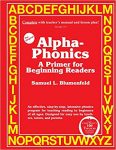 Education Research Institute in Oregon, U.S.A. (www.nheri.org). Dr. Ray is a former professor of science and education at the undergraduate and graduate levels, a former classroom teacher in both public and private schools, and he has taught homeschool students. Dr. Ray does research and speaking across the United States and internationally that focuses on home-based education research and pedagogy, and serves as an expert witness in court cases and to government bodies.
Education Research Institute in Oregon, U.S.A. (www.nheri.org). Dr. Ray is a former professor of science and education at the undergraduate and graduate levels, a former classroom teacher in both public and private schools, and he has taught homeschool students. Dr. Ray does research and speaking across the United States and internationally that focuses on home-based education research and pedagogy, and serves as an expert witness in court cases and to government bodies.
Part 1:
Resisting the Status Quo: The Narratives of Black Homeschoolers in Metro-Atlanta and Metro-DC
Peabody Journal of Education: Issues of Leadership, Policy, and Organizations, Vol. 88, No. 3
Cheryle Fields-Smith, University of Georgia
Monica Wells Kisura, Trinity Washington University
ABSTRACT
Trends suggest that homeschooling continues to increase among black families. Yet, research on contemporary Black homeschooling remains scarce. Given black educational history, the phenomena of Black families choosing homeschooling over public and private schools in the post-Desegregation era is worthy of investigation. Further, documenting the ways in which black homeschool families engage their children in learning will inform the needs of black education in conventional schools, public and private. The phenomenon of increasing black home education represents a radical transformative act of self-determination, the likes of which have not been witnessed since the 1960s and ‘70s. This work highlights the primacy of agency among black homeschooling families. Thus, contrary to the negative depictions of black families as disengaged from the educational pursuits of their children, we evoke hooks’s (1990) notion of homeplace to argue that black home education represents a vehicle of resistance to institutionalized racism and ideological mismatches between black families and their children’s educational needs.
ABOUT THE AUTHORS
Cheryl Fields-Smith, Ph.D., is an Associate Professor of Elementary Education in the College of Education at the University of Georgia in Athens, Georgia. She earned her doctorate from Emory University in 2004. Her research interests include family engagement and homeschooling among Black families. Dr. Fields-Smith consults and conducts professional development workshops related to cultivating home–school partnerships among diverse communities. Dr. Fields-Smith is also a founding board member of the International Center for Home Education Research.
Monica Wells Kisura, Ph.D., has dedicated her life to advancing educational innovation, access and equity; and to building bridges of mutual understanding across 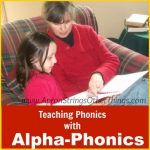 cultures. Dr. Wells Kisura was named a 2005–2006 Canada–U.S. Fulbright Fellow and has conducted pioneering research at the Ontario Institute for Studies in Education (University of Toronto) among Black/African Canadian home educators living in Ontario, Canada. Dr. Wells Kisura received her B.A. in Communication from Seattle Pacific University (1988), her M.A. in International Political Economy from American University (2005), and her Ph.D. in International Relations from American University (2009). She currently teaches applied human communication courses at Trinity Washington University in Washington, DC.
cultures. Dr. Wells Kisura was named a 2005–2006 Canada–U.S. Fulbright Fellow and has conducted pioneering research at the Ontario Institute for Studies in Education (University of Toronto) among Black/African Canadian home educators living in Ontario, Canada. Dr. Wells Kisura received her B.A. in Communication from Seattle Pacific University (1988), her M.A. in International Political Economy from American University (2005), and her Ph.D. in International Relations from American University (2009). She currently teaches applied human communication courses at Trinity Washington University in Washington, DC.
The Publishers of ALPHA-PHONICS are pleased to present this series of studies on the status of Homeschooling in the US. For the past 36 years many Homeschooling Families have chosen ALPHA-PHONICS to be their resource to teach reading to their children. Find out why below:

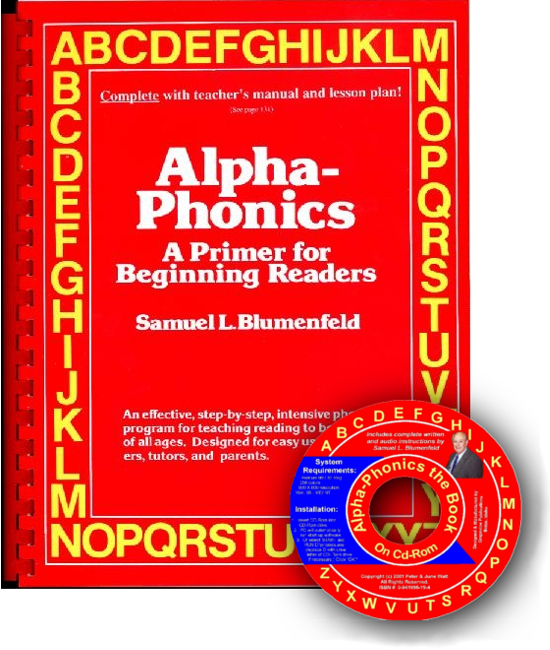 Alpha-Phonics
Alpha-Phonics The Alphabet Song!
The Alphabet Song! Water on the Floor
Water on the Floor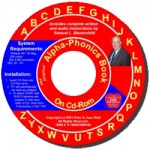 Alpha-Phonics the Book on CD Rom
Alpha-Phonics the Book on CD Rom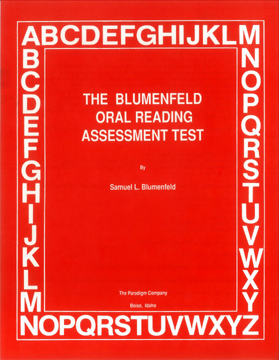 Blumenfeld Oral Reading Assessment Test
Blumenfeld Oral Reading Assessment Test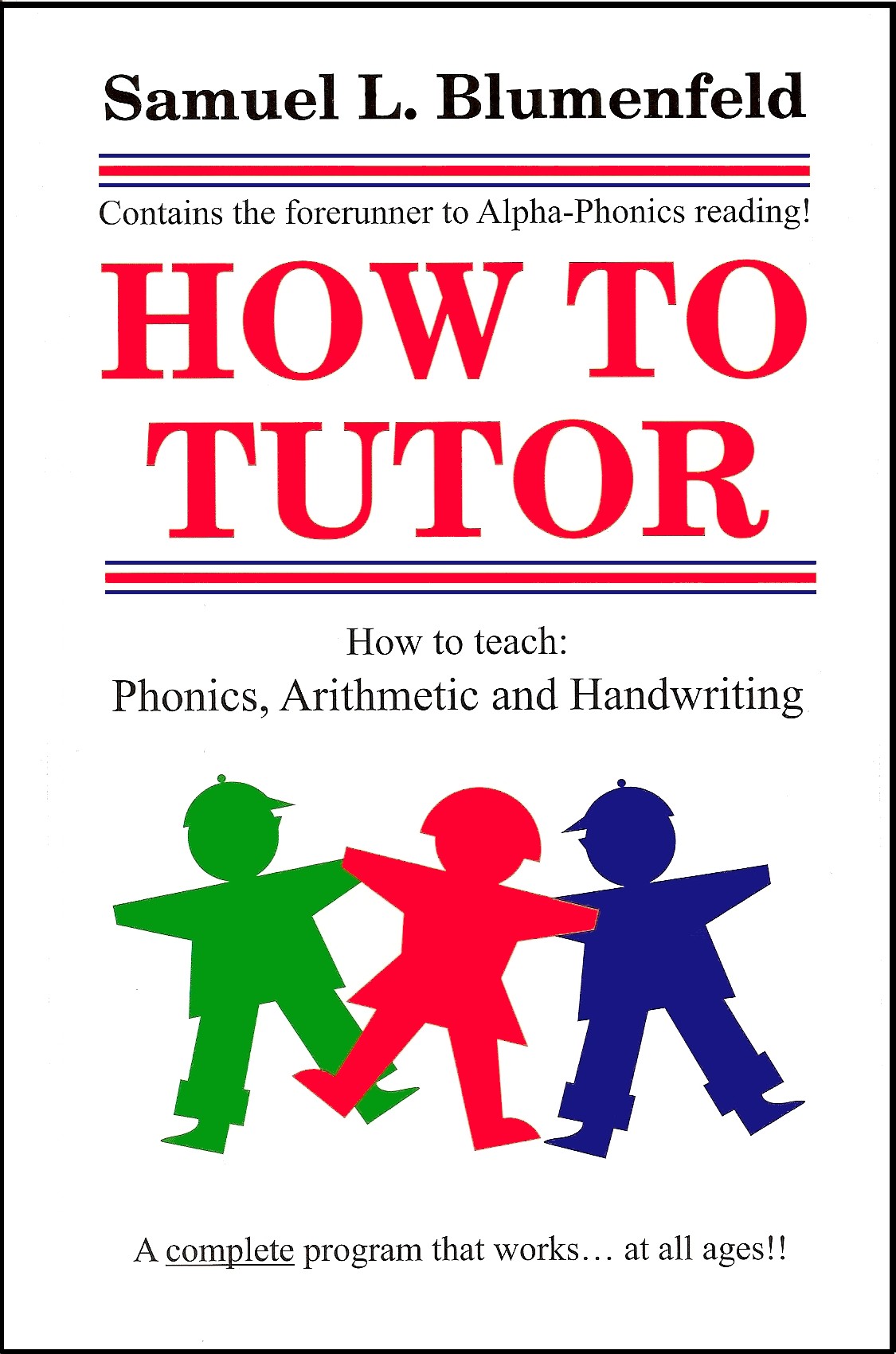 How To Tutor
How To Tutor How To Tutor Cursive Handwriting Workbook
How To Tutor Cursive Handwriting Workbook